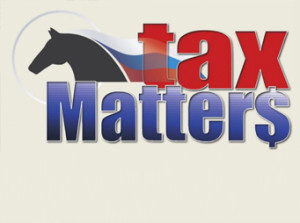Tax Matters – Is the Tax Court Biased in Favor of the IRS?
Click here to read the complete article82 – May/June, 2017
by John Alan Cohan,
Attorney at Law
 The U.S. Tax Court is a critically important institution. It is the the most common forum in which taxpayers litigate federal tax disputes. The court frequently decides IRS assertions that the taxpayer understated the correct tax liability, resulting in a tax “deficiency.”
The U.S. Tax Court is a critically important institution. It is the the most common forum in which taxpayers litigate federal tax disputes. The court frequently decides IRS assertions that the taxpayer understated the correct tax liability, resulting in a tax “deficiency.”
Many commentators argue that Tax Court judges are biased in favor of the IRS. Judges hear cases alone, without a jury. Many Tax Court judges have worked in the IRS Chief Counsel’s office or in the Tax Division of the U.S. Department of Justice. The Tax Court does not assign judges randomly to cases. The procedures are extremely burdensome. The burden of proof is “preponderance of the evidence,” which is a loose standard of evidence, and highly subjective. It means the the IRS could win if 51% of its evidence is more convincing to the judge than the taxpayer’s.
The Tax Court makes budget requests to Congress’s tax-writing committees. In justifying its budget requests, the Tax Court invariably explains to congressional committees how well it is enforcing the tax laws.
A Tax Court judge, Diane L. Kroupa, was indicted on tax evasion, conspiracy to defraud the United States, and obstruction charges, raising questions about whether any of her rulings could be vulnerable to challenge as a result. (Judge Kroupa abruptly resigned prior to the indictment without explanation. Her husband, now divorced, was also indicted.) As a Tax Court judge, Kroupa heard and decided a wide range of cases, including some that came down against taxpayers in the horse and cattle industries. In October, 2016, she pleaded guilty to conspiring to defraud the IRS and other crimes. When sentenced at a later date, she is likely to serve a significant prison term.
Another judge, L. Paige Marvel, has also been harsh with respect to the horse industry. In a recent case, Carmody v. Commissioner, T.C. Memo 2016-225, Judge Marvel came down hard on a taxpayer’s efforts to run his horse racing venture profitably.
The taxpayer, Jerald Carmody, has owned race horses for more than 20 years, mainly as a co-owner with others, and worked fulltime as a sales representative for a helicopter company.
He owned lower-priced horses which were actively raced in Washington State. Professional trainers were employed. He spent time every day on his horse racing activity, researched horses that would be in competition, and searched for other horses to purchase.
He purchased and improved a five-acre property with a 4,000 square-foot barn, horse stalls, a 5,000-square-foot arena, indoor horse shelters, and nine pastures. He personally cleaned stalls and pastures.
Some of the horses won several races each, and one was the alltime race winner at Emerald Downs with 21 wins. Mr. Carmody was named owner of the year at Emerald Downs. The races entered ranged in purses from $8,000 to $50,000.
Click here to read the complete article82 – May/June, 2017










